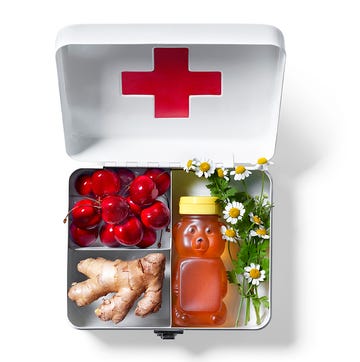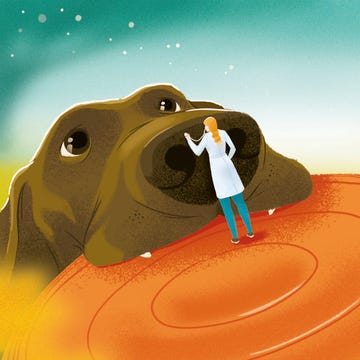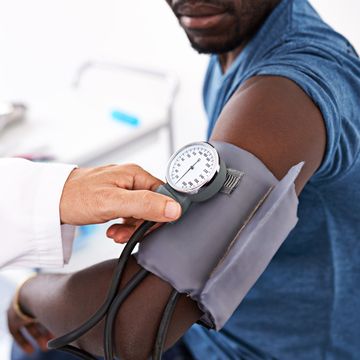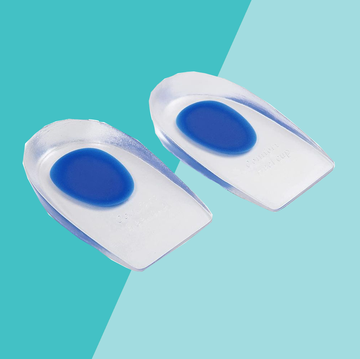It’s one thing to feel chilled when you’ve just come inside on a frigid day or if your office AC is always blasting away. But if you feel cold all the time (and nobody else around you is chilly), you may need to do a little sleuthing to determine what’s going on.
“Feeling cold is a common concern,” says Paul O’Rourke, M.D., M.P.H., an internal medicine physician and assistant professor of medicine at Johns Hopkins University School of Medicine. “It doesn’t always mean there’s an underlying disease condition, but it’s worth trying to pay attention to how often it occurs and if you notice any other symptoms.”
But don’t just pile on another sweater and forget about it. If you feel cold all the time and have other unexplained symptoms, it’s worth getting checked out. “Your doctor can do a history and exam and determine what tests might be appropriate,” says O’Rourke. “We have lots of effective treatments if there’s an underlying reason that you always feel cold.”
So, why am I always cold?
1. Anemia
Anemia occurs when you do not have sufficient red blood cells, which carry oxygen from your lungs to the rest of the body. In addition to being cold, you also may feel tired, weak, or lightheaded. While there are many types and causes of anemia, the most common is iron deficiency. “In women, it’s often due to heavy or frequent periods,” says O’Rourke. You also may have blood loss due to other reasons, such as an ulcer. A blood test can measure red blood cells; depending on the level, you may need iron supplements or to boost your intake of iron-rich foods such as meat, eggs, and leafy greens.
2. Hypothyroidism
The thyroid is a small gland at the front and base of the neck; its job is to create the hormones which regulate the body’s metabolism. Too little of this hormone and your metabolism slows, leaving you feeling chilled. You also may notice other symptoms such as dry skin, thinning hair, constipation, longer or heavier periods, and unexplained weight gain, says O’Rourke. A thorough history and blood test can determine if this hormone is low, which can be treated with a prescription medication.
3. Peripheral Artery Disease
Peripheral artery disease (PAD) is a blood vessel condition that affects people age 50 and older. People with PAD may have cold hands or feet and pain or tingling and loss of hair on extremities, especially on the legs. “The same risk factors that contribute to heart disease and add up over time, such as smoking, high cholesterol levels, and high blood pressure contribute to PAD,” says O’Rourke. Your doctor can order tests to evaluate the flow of blood vessels and work with you to develop strategies to quit smoking and lower your cholesterol, blood pressure, and weight, if necessary.
4. Raynaud’s Syndrome
Another circulatory condition is Raynaud’s syndrome, which causes decreased blood flow to the fingers and toes. “It’s a physiological response,” says Aline Holmes, D.N.P, R.N., clinical associate professor at Rutgers University School of Nursing. “The peripheral blood vessels constrict in response to cold. Some people can’t even tolerate going into the freezer section of the grocery store.” These spasms of the blood vessels also may occur in response to stress or emotional upset. Sometimes fingers or toes turn white or blue, too. The condition is diagnosed with a thorough history and tests to evaluate blood vessel function. Treatments include lifestyle changes such as avoiding cold when possible, always wearing gloves, and in some cases, taking medications to reduce vasoconstriction.
5. Being underweight
Here’s something you’ve been longing to hear: Not all fat is bad. “If you’re underweight, you may have insufficient body fat to insulate your body from the cold,” says O’Rourke. Not taking in enough nutrients also slows your metabolism so you don’t create enough body heat. Signs you’re underweight include irregular menstrual cycles, feeling tired, dizziness, or a BMI of less than 18. Talk to your doctor if you’re struggling with low body weight. Also, if you’ve had a significant weight loss recently, such as after bariatric surgery, it’s possible you may feel cold as your body adapts to your new weight.
6. Medications
Medications can cause a whole host of side effects, and feeling cold could be one of them, says O’Rourke. For example, some chemo drugs and beta blockers, which are prescribed for high blood pressure or irregular heart rhythms, may cause cold hands or feet. If you recently started a medication, contact your doctor about any new symptoms. Although your body may adapt, it’s best to make your healthcare provider aware in case medications can be adjusted.
7. Dehydration
Although it’s a less common reason for feeling cold, dehydration may be a contributing factor, says Holmes. Being dehydrated can affect metabolism so that you can’t stay warm. Other symptoms you may be dehydrated are dry mouth, you’re hardly going to the bathroom, and your urine is dark. It’s easy to underestimate how much water you need to keep your body balanced, especially if you’re wearing a mask all day. But a good rule is to drink enough water every day so that your urine is clear or light yellow. While you may remember to drink more in the heat, don’t forget you need extra water on cold days, too, to counteract moisture loss from dry air.
8. Lack of sleep
Although not well understood, not getting enough sleep may cause you to feel cold all over. “Lack of sleep may reduce the activity in the hypothalamus, which regulates a lot of things including metabolism and body temperature,” says O’Rourke. To get the recommended 7 to 9 hours a night most adults need, go to bed and get up at the same time (yes, even on weekends), shut down electronics at least 30 minutes before bed, and keep your room cool and dark with your cell phone in another room (not glowing and buzzing on your night stand all night!).
9. Anxiety
Although it’s not as common, feeling chilled may be associated with anxiety. It’s an individualized experience, but some people have physical symptoms including a pounding heart, sweating, nausea or chills during a panic attack. Although it’s unlikely feeling cold is the only symptom you may have during a panic attack, it’s worth paying attention to any new or unusual symptoms, and talking to your doctor if anxiety is disrupting your ability to function.
Arricca Elin SanSone has written about health and lifestyle topics for Prevention, Country Living, Woman's Day, and more. She’s passionate about gardening, baking, reading, and spending time with the people and dogs she loves.













